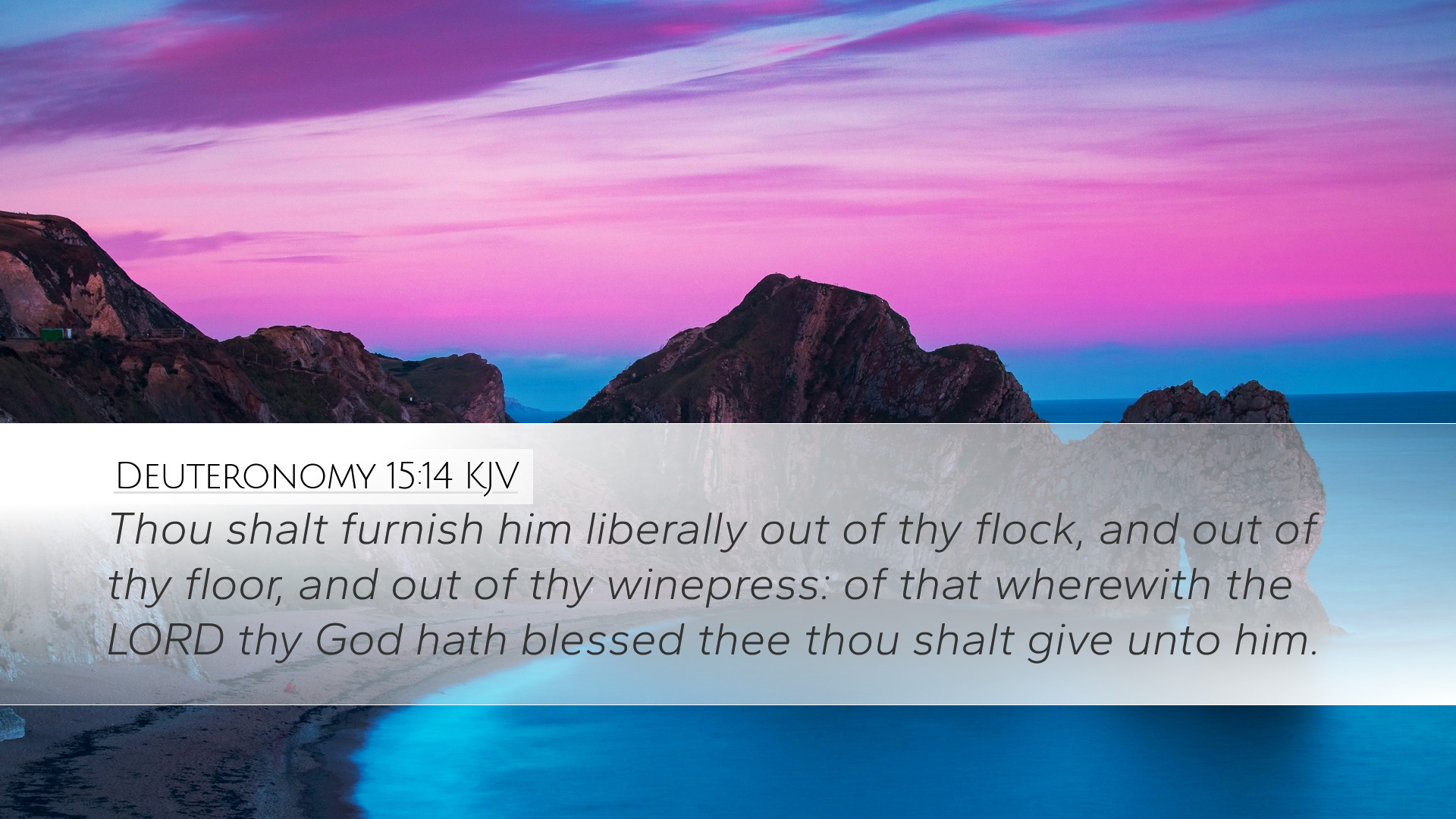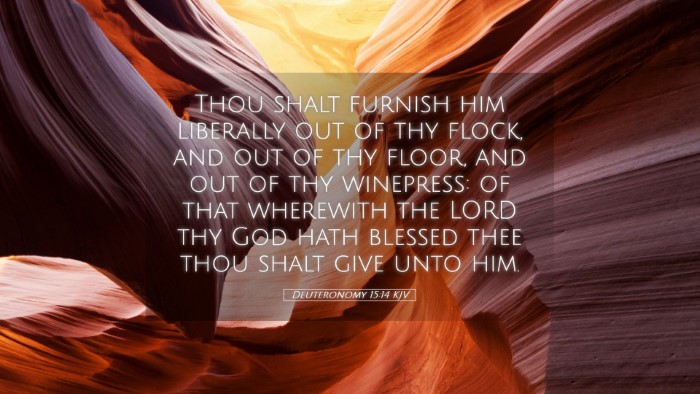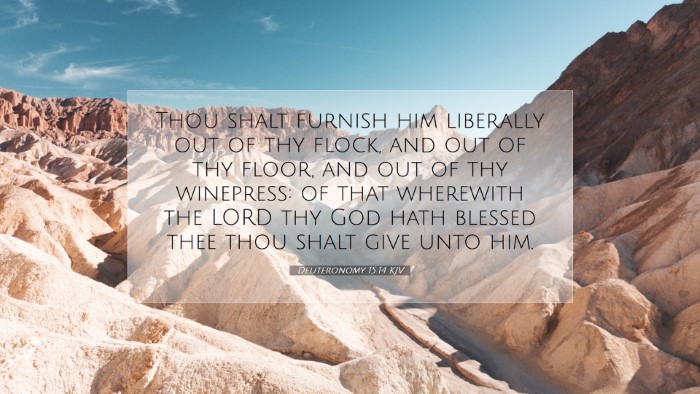Commentary on Deuteronomy 15:14
Deuteronomy 15:14 states:
"You shall supply him liberally from your flock, from your threshing floor, and from your winepress. As the Lord your God has blessed you, you shall give to him."
Contextual Background
The chapter deals with the laws regarding the sabbatical year and the treatment of the poor and needy within the community of Israel. This particular verse emphasizes the importance of generosity and the proper response to the needs of others.
Matthew Henry's Commentary
Matthew Henry highlights the significance of God’s blessings as a motivation for giving. The mandate to supply generously is rooted in the acknowledgment that all we have is bestowed by God. The depth of this verse conveys the principle that one must give because of the blessings received.
- Generosity: The call is to exceed minimal requirements; "liberally" indicates a spirit of overflowing generosity.
- Remembrance of God’s Blessings: Henry notes that giving is an act of worship, reflecting the abundance God has bestowed upon us.
- Social Responsibility: This passage reinforces the notion that community wellbeing is paramount and that wealth is to be shared amongst those in need.
Albert Barnes' Commentary
Albert Barnes offers a reflective perspective on the theological implications of this verse. He emphasizes that the command to give is not limited to mere obligation but is a manifestation of love and community.
- Practical Application: Barnes stresses that believers must evaluate their own wealth in light of the needs around them, encouraging a lifestyle of thoughtful benevolence.
- Divine Principle of Reciprocity: The verse suggests that blessings from God are intended to flow through us to others, thereby creating a cycle of grace.
- Reflection on Needs: The instruction to provide from various sources (flock, threshing floor, winepress) encourages a comprehensive view of how to care for others, utilizing multiple aspects of one’s livelihood.
Adam Clarke's Commentary
Adam Clarke expands the discussion to include the cultural context of Israel. He points out that the Israelites were to be vigilant in caring for the poor, particularly during the sabbatical year when debts were forgiven.
- Covenantal Obligations: Clarke links this verse to the broader covenant obligations the Israelites had toward society, reinforcing the idea that individual prosperity is tied to communal wellbeing.
- Spiritual Implication: He conveys that such generosity is not merely a social contract but an act of obedience to God, reflecting His character and generosity.
- Encouragement of Love: Clarke emphasizes that true charity is driven by love, which is the essence of the law, encouraging believers to give out of a heart that mirrors God’s compassion.
Theological Insights
The synthesis of these commentaries reveals a multi-faceted understanding of generosity rooted in biblical theology. This passage teaches that:
- The act of giving connects us to God’s character as He is the ultimate giver (John 3:16).
- Generosity is a communal responsibility, strengthening the body of Christ and reflecting a communal identity.
- The call to give should be proportional to God's blessings; a grateful heart produces abundant generosity.
Practical Implications for Pastors and Leaders
In pastoral ministry, this verse and its commentary encourage leaders to:
- Preach on the importance of stewardship and the blessings of giving within the church community.
- Model generosity in their own lives, demonstrating the practical application of Scripture.
- Foster a culture of generosity within their congregations, encouraging members to share not just financially, but also their time and talents.
Conclusion
Overall, Deuteronomy 15:14 is a profound reminder of our responsibilities to one another in the light of God’s abundant grace. The insights from Matthew Henry, Albert Barnes, and Adam Clarke collectively encourage a deep, heartfelt generosity that reflects our understanding of God’s own generosity towards us.


